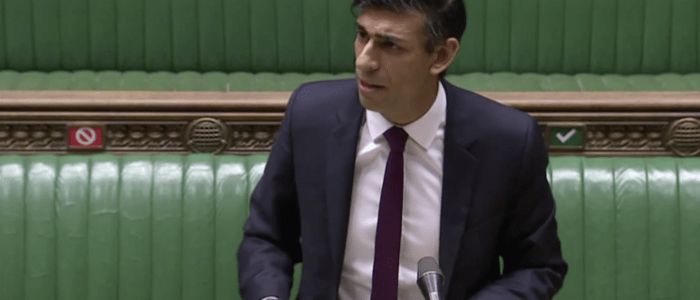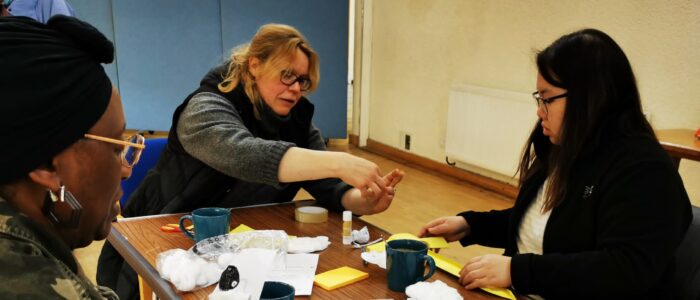Welcoming Rishi Sunak as Britain’s First Hindu Prime Minister

On Tuesday morning, Rishi Sunak was appointed as Prime Minister. In doing so, he becomes both the first person of Asian origin and the first person of faith from a non-Christian tradition to do so.1 As many have pointed out over the last few days, this is an exceptional example of the diversity we have in this country and, no matter what our political persuasion, Sunak will be an example to those from BAME communities wanting to reach the highest echelons of British society.
As Britain’s first Hindu Prime Minister, it will be interesting to see the approach Sunak takes to his new role—especially as he comes into power during one of the most turbulent times in recent memory. With the worst cost-of-living crisis in a generation, ongoing conflict in Ukraine, and a party so deeply divided it caused the downfall of his predecessor in a record amount of time, Sunak will need to carefully negotiate these challenges and do what he feels best for the country. But it is also important that we don’t see him as a Hindu Prime Minister, rather a Prime Minister who is a Hindu. There are situations where it could be thought that his faith would be an issue—such as our relationship with India, the largest Hindu majority country in the world, or recent violence in Leicester between Hindu and Muslim communities—but it would be wrong to assume that he would be influenced due to simply being a Hindu. He will want to be seen as a Prime Minister for the whole country, representing every single person, no matter their background.
As people of faith, that faith is often used as a prism through which we view the world—it shapes who we are and what we feel is important. As a practicing Hindu, I have no doubt that the teachings from his faith shape how Sunak approaches his work. But there are other lenses through which we view the world—our socio-economic status, our family life, and in Sunak’s case, the political party he belongs to. These will also play their part in how he approaches the challenges of his time in office.
However, as a person of faith himself, with knowledge of how faith can be both a motivator to those wishing to help those in need and a vehicle through which to reach them, I would encourage Sunak to champion the role of faith within our communities from his new position and ask his Cabinet members to look at how faith can support their priorities and how faith groups can be empowered to provide support to those priorities and to those in our communities that need their support. As the recently released report Keeping the Faith 2.0 points out, there is much that government and faith can do if they work together and, as the centre point for our political system, there is much that Sunak could do to shape this relationship.
No matter what happens over the coming months and years, Rishi Sunak’s place in our political history is assured—but it is now up to him how his time will be remembered.
1. While Benjamin Disraeli came from a Jewish background, he had converted to the Church of England before his appointment in large part because of public reaction to those not from Christian traditions in public life in 19th century Britain.
In preparation for Rishi Sunak’s first address to the nation after being appointed as Prime Minister, FaithAction’s National Executive Director, Daniel Singleton, listed 10 ideas the Sunak government could follow as they come into government #Ten10
- Recruit all the talents in government and the country including Voluntary Sector and Faith
- Time to be strategic with stimulus – levelling up is not a catchphrase but a social justice phrase. There is an opportunity to do something significant for the UK in these difficult times. (e.g Launch of NHS in post-war austerity)
- Social care system needs an honest cross-party approach. We must consider an aging population and the tax burden falling on a shrinking younger population. A practical review of our approach to migration needs to be grappled with, away from soundbites and cheap headlines.
- Mobilising social and faith capital – it’s not all about the finance sector, it’s not all about public sector spending. Civil society has a role to play and should be adequately resourced and consulted to design and produce solutions.
- Education needs to not be at the whim of ideologies and broaden its ability to create social mobility as well as build on values in communities.
- Government has to be about protection and security; protection of the vulnerable whether at home or abroad and security; economic, social, and financial to achieve this. ‘Doing our bit’ has been one of the ways we have been a leading nation, (whether this has been in an unreported situation such as Sierra Leone or closer to home like Ukraine.)
- Faith should be seen as an asset not a risk, and therefore there should be a minister for faith at the cabinet table
- As faith is not just for a crisis or election season, a faith commissioner should be established be a conduit for faith into Government, demonstrating the possibilities for the role of faith in the public square.
- A faith task and finish group should be established to look at knotty issues for the UK: a) levelling up and health inequalities, b) immigration, migration and integration, c) cost of living crisis.
- Government should support and sign the faith covenant – established by the APPG on Faith and Society.



